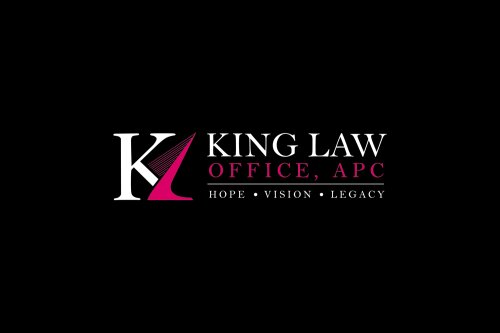Best Due Diligence Lawyers in United States
Share your needs with us, get contacted by law firms.
Free. Takes 2 min.
Or refine your search by selecting a city:
List of the best lawyers in United States
About Due Diligence Law in United States
Due diligence in the United States involves a comprehensive appraisal of a business or investment before entering into an agreement or transaction. It is a process often used by prospective buyers to assess assets, liabilities, and commercial potential, ensuring that all necessary information is reviewed and analyzed to make informed decisions. Due diligence can play a critical role in mergers and acquisitions, real estate transactions, and various types of financial investments, aiming to minimize risks and uncover any potential issues.
Why You May Need a Lawyer
There are numerous situations in which people might require legal assistance with due diligence. Hiring a lawyer can be crucial in navigating complex legal documents, negotiating terms of a transaction, or ensuring compliance with relevant laws and regulations. Some common scenarios include:
- Mergers and acquisitions, where comprehensive due diligence is necessary to evaluate a firm's value and liabilities.
- Commercial real estate transactions requiring a thorough assessment of property titles and zoning laws.
- Investment equity review to identify risks and validate financial statements.
- Financial audits and review of contractual obligations.
In each of these situations, a legal professional can provide invaluable guidance and protection against potential pitfalls.
Local Laws Overview
The framework for due diligence in the United States encompasses federal, state, and local levels of regulation. Key aspects include:
- Securities Law: Governed by the Securities and Exchange Commission (SEC), ensuring transparency and compliance in financial transactions and investments.
- Antitrust Regulations: Oversight by bodies like the Federal Trade Commission (FTC) to prevent anti-competitive practices during mergers and acquisitions.
- Environmental Regulations: Laws such as CERCLA (Comprehensive Environmental Response, Compensation, and Liability Act) require assessments of environmental risks.
- Data Protection and Privacy: Legal obligations such as those under GDPR and state laws like CCPA require due consideration of data handling practices.
These elements can heavily impact due diligence processes and necessitate a keen understanding of relevant laws and regulations.
Frequently Asked Questions
What is the purpose of due diligence?
Due diligence aims to thoroughly evaluate a business or investment to identify risks, verify financials, and ensure compliance with legal standards, thereby providing critical information needed to make informed decisions.
How long does a due diligence process typically take?
The length of due diligence varies depending on the complexity of the transaction but generally lasts from 30 to 90 days.
What are the key areas addressed in due diligence?
Key areas include financial performance, legal compliance, market position, asset examination, and risk management assessments.
Can due diligence be conducted by the buyer alone?
While buyers can conduct due diligence, involving legal and financial advisors can provide a more thorough analysis and prevent oversights.
Is due diligence mandatory?
While not legally mandatory, due diligence is highly recommended to protect parties involved in major transactions and investments.
What happens if issues are found during due diligence?
Findings may result in renegotiations, price adjustments, or even withdrawal from the deal if the issues outweigh potential benefits.
What information is typically reviewed during due diligence?
This includes financial records, legal documents, compliance certifications, and operational data, among other relevant information.
Can due diligence uncover all potential risks?
While comprehensive, due diligence may not uncover every risk, but it significantly reduces the likelihood of unforeseen issues.
Who typically conducts due diligence?
Teams usually comprise financial advisors, legal experts, accountants, and subject-matter specialists.
How much does due diligence generally cost?
Costs vary with transaction size and complexity, but typically range from several thousand to hundreds of thousands of dollars.
Additional Resources
The following resources can provide further assistance and information related to due diligence:
- Securities and Exchange Commission (SEC): Provides guidance on financial disclosure requirements.
- Federal Trade Commission (FTC): Oversees compliance with antitrust laws.
- Environmental Protection Agency (EPA): Offers resources on environmental due diligence.
- American Bar Association (ABA): Offers legal guidance and resources related to due diligence.
- Local Chambers of Commerce: Can provide insights into local regulations and business practices.
Next Steps
If you need legal assistance with due diligence, consider the following steps:
- Identify specific areas where you require help and gather relevant documentation.
- Research and select a qualified attorney with expertise in your industry and knowledge of local regulations.
- Schedule a consultation to discuss your needs and develop a due diligence strategy.
- Continue to stay informed about local laws and regulatory changes that may affect your transaction.
A qualified due diligence lawyer will guide you through the complexities and help ensure a successful and compliant process.
Lawzana helps you find the best lawyers and law firms in United States through a curated and pre-screened list of qualified legal professionals. Our platform offers rankings and detailed profiles of attorneys and law firms, allowing you to compare based on practice areas, including Due Diligence, experience, and client feedback.
Each profile includes a description of the firm's areas of practice, client reviews, team members and partners, year of establishment, spoken languages, office locations, contact information, social media presence, and any published articles or resources. Most firms on our platform speak English and are experienced in both local and international legal matters.
Get a quote from top-rated law firms in United States — quickly, securely, and without unnecessary hassle.
Disclaimer:
The information provided on this page is for general informational purposes only and does not constitute legal advice. While we strive to ensure the accuracy and relevance of the content, legal information may change over time, and interpretations of the law can vary. You should always consult with a qualified legal professional for advice specific to your situation.
We disclaim all liability for actions taken or not taken based on the content of this page. If you believe any information is incorrect or outdated, please contact us, and we will review and update it where appropriate.
Browse due diligence law firms by state in United States
Refine your search by selecting a state.
















